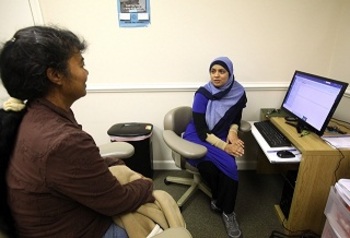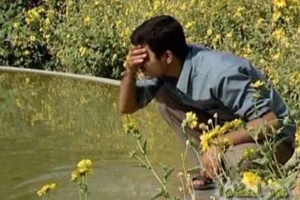Lady Fatimah, the unique sample for human being-3
The life of Lady Fatimah is a sample for us from every side and dimension. One of the dimensions of that is her relation with her husband Imam Ali. She was in the house of Imam Ali for nine years till the time in which she got martyr at the age of eighteen.
Imam Ali said: She never made me angry and never disobeyed me and verily when I was looking at her my sorrow and sadness were being removed.
This good relation was from both sides. Imam Ali said: I swear by Allah I never made Fatimah angry until the time that Allah took her (i.e. she got martyr) and I never caused her to be unpleasant in any matter.
This couple was so much appropriate and compatible with each other. The holy Prophet of Islam said:
If Ali was not, there would not be any match for Fatimah.
The deep love between these infallible spouses was not just because of their marriage, but rather it was because of the great position that each had before Allah. After the departure of the Prophet, Imam Ali was the Imam of the time of Lady Fatimah.
So we see that she was protecting the Imam of her time in different situations. When after the departure of the Prophet, Imam Ali was deprived from his right of governing; Lady Fatimah was supporting Imam Ali through different ways, like going to the houses of people and reminding them of the sayings of the Prophet about Imam Ali as his successor. So her supports were not because of the marital relation with Imam Ali but rather were for the very important base in Islam i.e. the divine leadership and governing by the infallible person who was the collection of all virtues and good characteristics.
Through these three posts we mentioned a drop from the ocean of the virtues of Lady Fatimah, a Lady about whom Imam Mahdi (May Allah hasten his reappearance) said:
The daughter of the Prophet of Allah is a good sample and role model for me.






